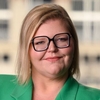Personal Injury Damages: Addressing Pain and Suffering, Pre-Impact Damages, Conscious Suffering Before Death

Course Details
- smart_display Format
On-Demand
- signal_cellular_alt Difficulty Level
Intermediate
- work Practice Area
Personal Injury and Med Mal
- event Date
Tuesday, April 8, 2025
- schedule Time
1:00 p.m. ET./10:00 a.m. PT
- timer Program Length
90 minutes
-
This 90-minute webinar is eligible in most states for 1.5 CLE credits.
This CLE course will discuss the art of arguing for or against a plaintiff's claims for pain and suffering, including pre-impact damages and conscious pain and suffering before death, as well as some of the evidentiary keys to unlocking these damages and the burden of proof at trial.
Faculty

Mr. Kiniry is engaged in a broad-based litigation practice focused on product liability, medical malpractice, internal investigations and regulatory compliance. He has first chair trial experience with automotive product liability litigation, particularly warranty litigation where he has appeared in nearly every court in the State of Maryland. Mr. Kiniry's practice is centered on the preparation, trial, and appeal of civil litigation cases, including conducting internal investigations in reconstructing and explicating the “company story” with respect to involvement with legacy products such as asbestos; responding to and conducting discovery in mass tort (asbestos) litigation; the representation of a major health care system and its practitioners in a variety of contexts; representation of major pharmaceutical manufacturers, as well as manufacturers and distributors of automobiles and heavy construction equipment.

Prior to founding Randels Injury Law, Ms. Randels worked at two prominent Atlanta area injury firms for the better part of a decade. Since 2020, she has been recognized as a Super Lawyers Rising Star, an honor given to only 2.5% of the lawyers in Georgia. 2024 marks her fifth year being recognized. Ms. Randels has also been recognized as one of Georgia Trend's Legal Elite, named in Best Lawyers in America -- Ones to Watch, and is a member of the National Trial Lawyers Top 40 Under 40. Since 2020, Ms. Randels has been a member of the Georgia Trial Lawyers Association's Executive Committee, serving as chair of the New Lawyers Division, the Communications Committee, and the Women's Caucus.

Dr. Kansky leverages her rigorous academic background and expertise in psychology to analyze jurors’ reactions to case themes and perceptions to arguments to predict juror behavior at trial. She provides a variety of services to clients including focus group and mock trial facilitation, voir dire development, and jury selection assistance. Dr. Kansky excels at analyzing qualitative and quantitative data from mock trials, with a particular emphasis on developing juror profiles to guide counsel through the jury selection process. She has applied these skills in a wide variety of cases involving civil rights claims, environmental contamination and toxic tort, medical device and consumer liability, construction disputes, transportation personal injury and wrongful death, premises liability, insurance and financial fraud, defamation, and breach of contract. Dr. Kansky has over 15 years of research experience across academic and trial settings and is a Licensed Clinical Psychologist.
Description
Non-pecuniary damages are a matter left to the jury's discretion, which is then asked to measure the inherently unmeasurable: What sum of money will compensate the plaintiff for the involuntary experiences and life changes that have resulted from the defendant's acts? Two plaintiffs may experience the same injury differently.
Attorneys debate which methodology to use before the jury. Plaintiff counsel want the jury to appreciate the full extent (and full value) of what the plaintiff has lost, while defense counsel will surely attempt to point out any shortcomings and argue the "unfairness" of whatever calculation the plaintiff counsel uses. Counsel on both sides must be well prepared to persuade the jury to understand why or why not to award noneconomic damages.
Listen as our distinguished panel guides personal injury attorneys on proving (or disproving) a pain and suffering damages award. The panel will discuss best practices for calculating damages, conducting voir dire, and preparing jury instructions in advance of trial.
Outline
- Types of pain and suffering
- Methods for calculating pain and suffering damages
- Persuading the jury
- Educating the jury about pain, possible themes, opening/closing
- Forbidden arguments
- Defense insights on themes and closing arguments
- Burden of proof
- Types of evidence that may be used
- Pre-incident and conscious suffering before death
- Standards of review on appeal
Benefits
The panel will review these and other relevant topics:
- What is "pain and suffering"?
- What methodologies may be used to calculate pain and suffering damages?
- What types of arguments are prohibited?
- What key issues should counsel consider when seeking expert witnesses?
Unlimited access to premium CLE courses:
- Annual access
- Available live and on-demand
- Best for attorneys and legal professionals
Unlimited access to premium CPE courses.:
- Annual access
- Available live and on-demand
- Best for CPAs and tax professionals
Unlimited access to premium CLE, CPE, Professional Skills and Practice-Ready courses.:
- Annual access
- Available live and on-demand
- Best for legal, accounting, and tax professionals
Unlimited access to Professional Skills and Practice-Ready courses:
- Annual access
- Available on-demand
- Best for new attorneys
Related Courses

RICO Claims Arising From Personal Injuries: Strategic Considerations in Light of Medical Marijuana Inc. v. Horn
Wednesday, June 4, 2025
1:00 p.m. ET./10:00 a.m. PT

Structured Settlements in Complex Claims: Integrating MSAs, Special Needs Trusts, and Attorney Fee Deferrals
Wednesday, May 28, 2025
1:00 p.m. ET./10:00 a.m. PT

Personal Injury Settlement Ethics: Avoiding Malpractice on Tax, Government Benefits, and Other Specialized Issues
Wednesday, June 4, 2025
1:00 p.m. ET./10:00 a.m. PT

Personal Injury and Corporate Responsibility for Customer Safety: Lessons From Garcia v. Starbucks
Monday, May 12, 2025
1:00 p.m. ET./10:00 a.m. PT
Recommended Resources
Making Continuing Education Work for You, Anytime, Anywhere
- Learning & Development
- Career Advancement
Getting the Most Out of BARBRI Resources
- Learning & Development
- Business & Professional Skills
- Talent Development